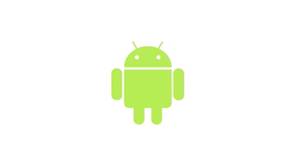Google: a good malicious friend
2013/05/01 Leturia Azkarate, Igor - Informatikaria eta ikertzailea Iturria: Elhuyar aldizkaria

Google has always made very good products. His first product (and the one that is still his main asset), the search engine, was revolutionary in his day; indexing a much larger part of the web than those that existed until then, was much faster and translated, through the algorithm Page Rank, much better results. The GMail email also easily exceeded similar services, both in its features and in its capacity. And with many other services that have been coming out, similarly: Maps, Translate, Docs, Reader, Analytics... For all this, the company has been admired by technologists, but it has not been the only reason.
Google’s informal slogan “don’t be evil” means “not to be bad.” With this phrase he expressed his intention to fulfill a minimum ethical principles and to put the user before anything. Of course, Google is a company that also intends to make money (and even get it! ), but within a philosophy. And that philosophy has had a great influence when it comes to achieving the admiration and fidelity it has achieved among a people.
A different and friendly company...
Many people in favor of free software has always been very Google, because Google has been the great user of free software. The Linux operating system and the Python programming language are widely used within Google, both free. Google's Android mobile operating system is also based on Linux. And he has collaborated a lot in the development of free software: the people of his staff have contributed to free software, grants Summer of Code scholarships to develop free software...
In addition, it has always used and encouraged open protocols and standards. For example, in your chat service Google Talk does not use its proprietary protocol as its competitors (Facebook, Messenger, Skype...); It uses the open XMPP standard, allowing you to communicate with programs, services and users who use it, not just with Google Talk users. And he also created Google Wave, an evolution of email, combining email, wikis and messaging, publishing it as an open protocol and releasing software for use (about this word we did to you in October 2009).
Traditionally it has also been a sponsor of users' privacy. Despite the fact that everything you know about us (our e-mails, searches, contacts, agenda, videos that we see...) many people look with suspicion, so far it has not been worried: when the police, the federal or the government ask you the data of the users denies them, unlike others, only deliver them at the request of the judges.
And to companies that do similar things, he also appears as a defender of freedoms. Apple, for example, totally controls and restrict the software that can be installed on iPhone and iPad, while on phones with Android operating system any legal application is accepted.
Finally, the working conditions of Google also give you the image of a cool company. Their employees work on Fridays in projects of their initiative, they eat free in the local dining rooms, there are many options of service and leisure for the workers at the... The dream of many computer scientists is to work on it!
… still?
But lately this image of Google is changing in the eyes of many people. And there are a lot of people who think it has changed attitude and that, like any company, make money and get ahead of everything, forgetting the principles.
Google has received numerous complaints because it has begun to charge several services it previously offered for free: APIs of Google Maps and Google Translate, suite Google Apps for companies... However, I think that's legitimate, in short, Google is a company that has to make money. What is not understandable is to close services without more, arguing the lack of profitability or use, without giving option to continue to be payment services. And, to a certain extent, by the philosophy it claims, it should maintain unprofitable services...
One of these closed services was Google Wave. The technology presented as such a revolutionary was abruptly closed to a few years after the adoption. It is true that it did not have the same diffusion as expected, but why was it such a powerful tool? Google itself allowed to kill Wave slowly. When you wanted to communicate with someone, it was not convenient to go to Wave to see if the recipient had accounts there and if it was not like sending them by mail; in the same way, as in any communication tool, from time to time you had to check if something came and it was not practical to look at the two sites (mail and Wave). And it happened that someone sent him a wave and then had to tell by e-mail that he sent him a wave because he did not respond... If Google had been integrated into the Wave GMail interface with Google Wave: Seeing that when writing to someone in the GMail interface the recipient has a Wave account, he could allow him to communicate by Wave and show in Gmail the new Wave we received. It was a logical move if you really wanted to push Wave, but didn't. It was the first indication of a change of attitude towards open protocols. Google Buzz and Google+, for their part, integrated their closed social products with GMail…
They announce the closure of Google Reader. It has never been a product for the public, and surely it did not give him money, but it has a range of users not despicable and faithful, and this type of services is necessary for many of us, as we mentioned last year. Fortunately there are alternatives, but the news provoked discomfort.
It has also retracted in the interconnection of open protocols and different systems. Google Talk, for example, imposed accepting the connection requests of other external XMPP users, even though the complaints received led him to desist. As for free software, Google has not released the code from the latest versions of Android.
Google also took a step back in privacy by unifying user information of all its services: now, for example, you can display YouTube releases using your GMail information. It is not as serious as giving our data to another, but there is a certain breach of privacy that is not legitimate to many people. And it has put economic benefits ahead of freedom: it has removed from its Google Play store mobile apps and tablets programs like AdBlock that block ads in the browser.
Each of the details cited can be anecdotal if compared to Google's entire journey, but all of them are indicators of a tendency to occur in such a short time at a time. Perhaps it is not for the time being enough to be considered a demon, maybe it still has much better Internet behavior than other big companies in the world... But Google is no longer an Angelito and has certainly lost unconditional support from much of its traditional followers.
Gai honi buruzko eduki gehiago
Elhuyarrek garatutako teknologia






